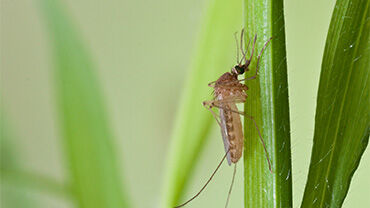Epidemiological update: Malaria in Greece, 6 December 2011Archived
Between 21 May and 5 December, 2011, 63 cases of Plasmodium vivax infection have been reported in Greece. The majority of cases (n=57) are reported from the area of Evrotas in Lakonia district, Peloponnese in southern Greece.
| Between 21 May and 5 December, 2011, 63 cases of Plasmodium vivax infection have been reported in Greece. The majority of cases (n=57) are reported from the area of Evrotas in Lakonia district, Peloponnese in southern Greece. The last detected domestic case of malaria in Lakonia had onset of symptoms on October 18, 2011. More than 45 days have elapsed from the date of symptom onset of this last case and mosquito vector activity has ceased. Given the enhanced surveillance and extensive active case finding in the area, the epidemiological and entomological evidence suggests that local transmission of malaria in the area is discontinued at present. |
The Greek Centre for Disease Control and Prevention (KEELPNO) has posted an update on their website regarding the outbreak of Plasmodium vivax that has been reported in Greece.
Between 21 May and 5 December 2011, 63 cases of Plasmodium vivax infection have been reported in Greece. Fifty-seven of these cases are reported from the area of Evrotas, a 20 km2 river delta area, located in the district of Lakonia in Peloponese, southern Greece (see map). Of these, 27 are in Greek citizens without travel history to malaria-endemic regions, 23 malaria cases occurred in migrant farm workers from endemic countries (mostly Pakistan and Afghanistan) and seven cases in migrant farm workers from non-endemic countries (i.e. one from Morocco, one from Poland and five from Romania, two of whom were diagnosed after they returned back to Romania). The remaining six cases in other municipalities are in Greek citizens with no travel history to malaria endemic areas from the municipalities of Attiki (n=2), Evia (n=2), Viotia (n=1) and Larissa (n=1).
The last reported case in a Greek citizen was on 18 October. The last reported case in a migrant worker, occurred during week 44 (31 October-6 November) in a man from Pakistan who arrived in Greece recently.
Given the enhanced surveillance and extensive active case finding in the area, the epidemiological and entomological evidence suggests that local transmission of malaria in the area is discontinued at present. The Greek authorities will continue active case finding in Evrotas, Lakonia, during the winter months in order to carefully monitor the situation. Chemoprophylaxis for malaria is not recommended for visitors to this area. The use of standard mosquito biting prevention measures continues to be encouraged.
Read more:
- ECDC Rapid risk assessment on autochthonous Plasmodium vivax malaria in Greece, 11 October 2011
- ECDC Rapid assessment:Autochthonous Plasmodium vivax malaria in Greece, 23 August 2011







